CURRY LIFE’S reporter Sam Smith caught up with Jangir Alam, proprietor of the stunning waterside restaurant Bombay Quay in the town of Northwich, to share his views on opening and running a successful large restaurant – and how to sustain one during a time of national crisis.
THE TOWN OF NORTHWICH is south of Warrington, which just so happens to feature Bombay Quay’s sister restaurant, Bombay 8. That restaurant featured in a previous issue of Curry Life from last year. The River Weaver runs directly through the centre of the town, making Northwich an ideal location to relax by the water’s edge and enjoy a good meal – especially now that the UK hospitality industry is coming out of hibernation.
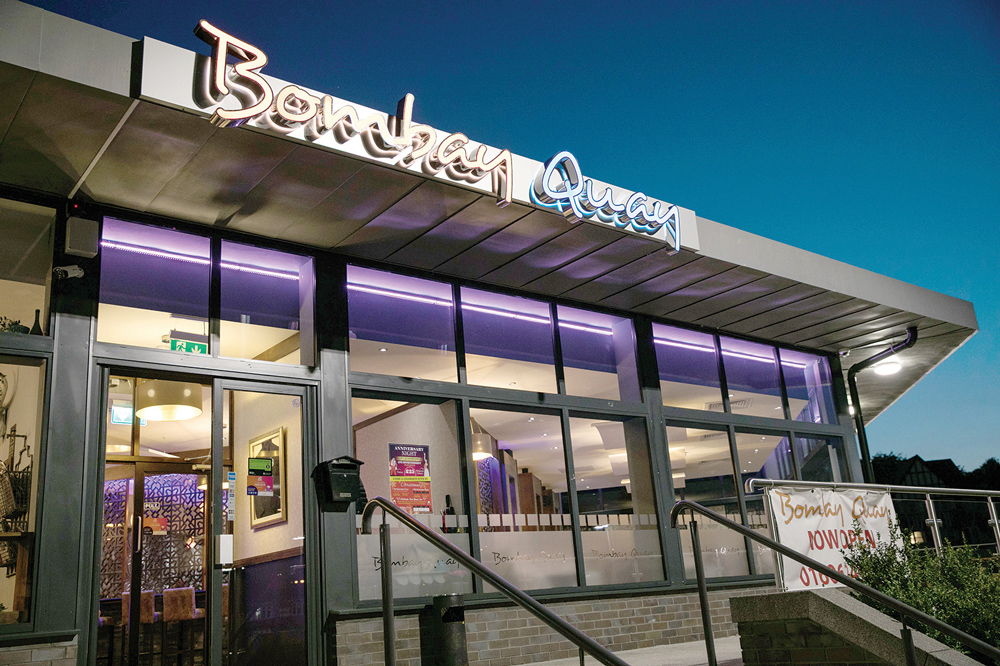
Alam believes Northwich is becoming increasingly cosmopolitan and that more people are settling in the town, so there is a demand for new and exciting places to visit and eat at. He points out a trend for fewer people leaving in the evening to go to nearby town centres; instead, they choose to stay in Northwich. All of which bodes well for his restaurant.
“More people have moved to the town, and more houses have been developed in recent years,” he says. “This has resulted in more restaurants too. We identified this trend and chose the town as our location for this reason. We named it Bombay Quay due to it being by the water and to connect to Bombay 8. We’re glad we did because our customers love it, there’s also nothing else like us nearby, so it was a worthwhile investment.”
Team approach
The restaurant opened in 2016 and around 80% of its customers are regulars, who bring new people who then return themselves and bring their friends.
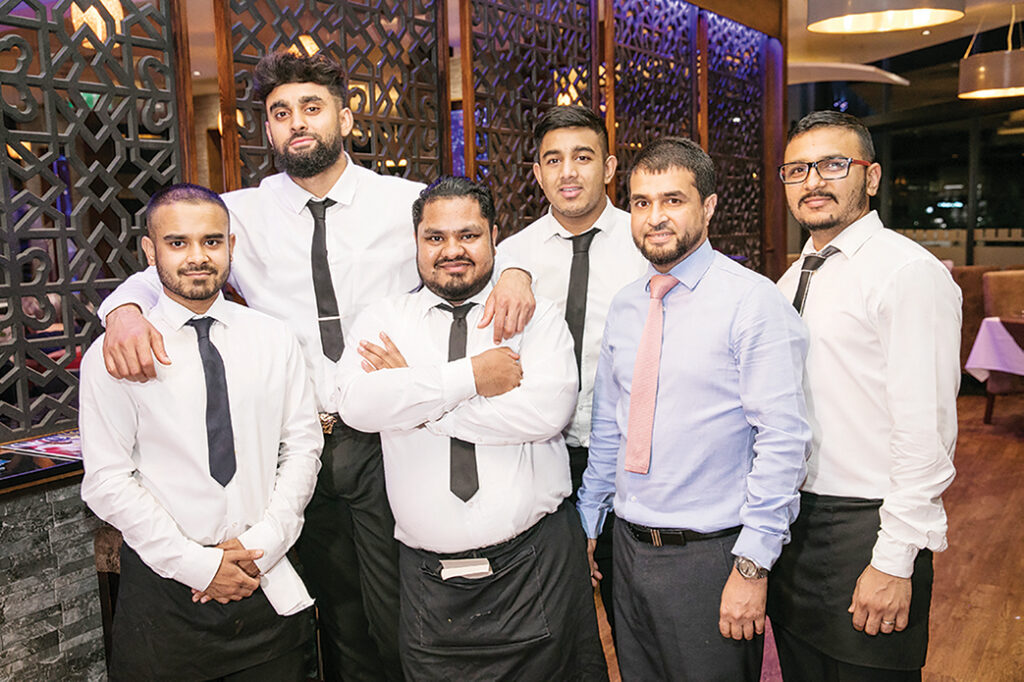
“We’ve done no traditional advertising since we’ve been open, with our popularity all about word of mouth. Our growth is down solely to our customers’ experience,” says Alam. “We have 12 chefs in the kitchen, most of whom have been here since day one. This has been great for consistency; our customers know what they like and what to expect each time they visit.”
One of Alam’s business partners from the front of house side has been stuck in Bangladesh since the pandemic started, however, leaving him and the other partners short-handed. The team has stayed in touch and continued to support one another, with everyone aiming to keep the restaurant operating at peak performance, even if they are separated for a period of time.
“It’s helpful to have a partner in each area of the restaurant, be it front of house or kitchen,” says Alam. “Each of us can then keep an eye on a different aspect of the business and take responsibility for it, and we all have a vested interest in its success. Other partners also know that the remaining areas of the restaurant are in good hands. We all want to succeed together. This method also helps us lead our individual teams from the front. You’re never taking instructions from a manager, but from one of the owners.”
Seizing opportunities
Alam himself started working in the restaurant trade at 14 years of age and gathered experience throughout school and college. He went on to study computer engineering at university, but upon leaving higher education, he decided to go back into hospitality, opening his first restaurant at the age of 21.
“My heart was in my course, I’m still very interested in technology, but I was always making five-year plans in my head, and opening a business was part of that”, he explains. “I think I was just more of an entrepreneur at heart. I have used these skills to improve the business though, be it through new digital innovations or software; I still love computers.”
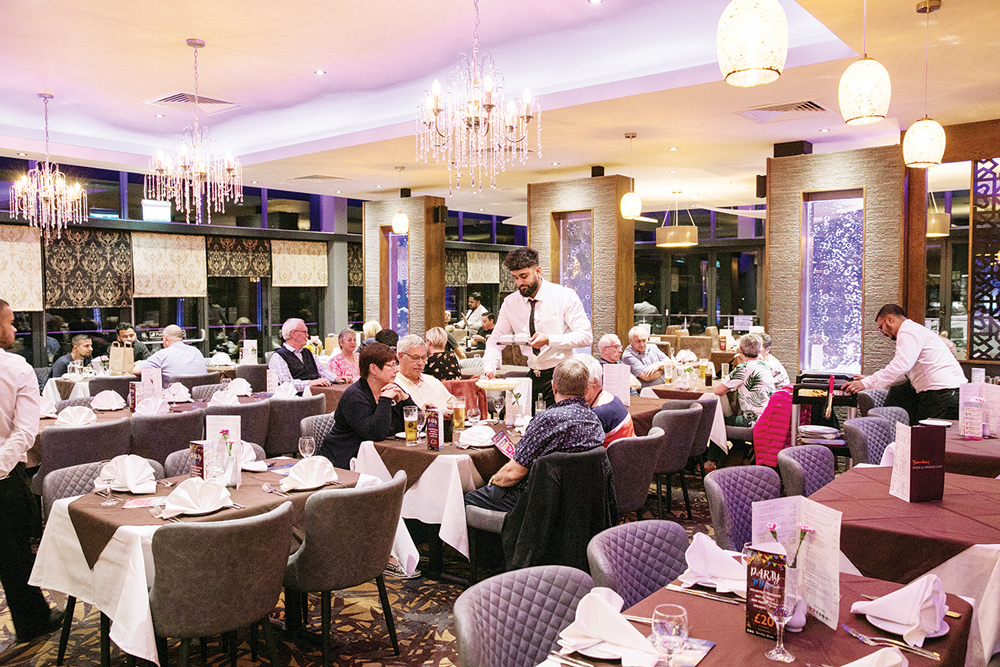
Running a restaurant during the Covid-19 pandemic presented a fair number of challenges, with everyone having to adapt to change.
“When the pandemic struck, we had 400 people coming in for Mother’s Day 2020,” recalls Alam. “I was driving to work listening to the news, and by the time I arrived, I started getting call after call asking to cancel reservations. This was just a few days before the first lockdown started.”
“We closed for a while just to gather our thoughts and make plans. Staff were asking what was going on, and for a while I didn’t know what to tell them. As their boss I needed to reassure them, but I didn’t know what was going to happen myself. Everything was so uncertain, and at first we only thought this was going to go on for a few weeks.”
Alam recalls leaving the restaurant the day it had to close. He says that as he put that key in the lock, he felt quite emotional, and he had no idea when he would be turning this key again.
“Or would I be passing the keys to someone else?,” he says. “It was an indescribable feeling, especially when you’ve worked so hard to build a business. I never thought I’d see the day when I’d need to close this place down. It was good to spend some time at home with the family when it all started, but in the back of my mind I needed to work out what was happening with the business.”
Changing times
When the business reopened, Alam decided this would be for only five days a week instead of seven, and with a minimal number of staff, who all worked together to share shifts to make sure that everyone got to be involved in some way. They liaised over Zoom and WhatsApp groups,with the team taking over responsibility for the rota. Alam says the partners were really impressed by how the team pulled together.
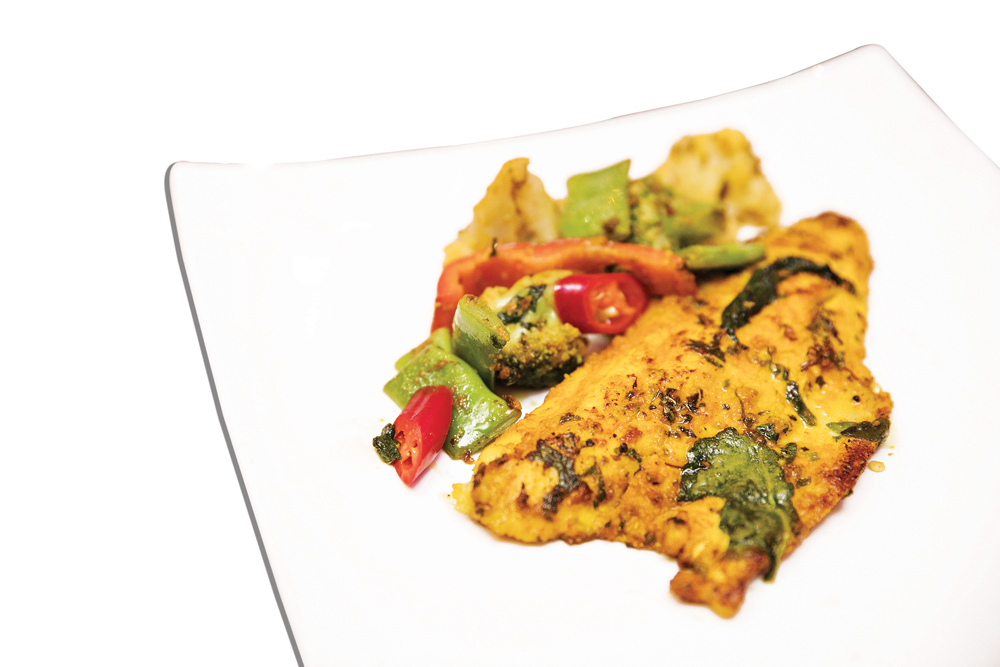
Once Bombay Quay reopened, Alam and the team had to work within the restrictions but also needed to ensure that as a business, it remained profitable.
“We’ve never done delivery, and have focused our efforts on takeaway only,” he says. “Once we opened, I was overwhelmed by the response from our regular customers. We created a one-way system for people to collect their food. People were queuing out into the car park and close to the street. We’d never seen anything like it before.”
To cope with the demand, the restaurant also had to turn off the phones and take orders in stages; this was to prevent the kitchen staff from being overwhelmed.
“Everyone liked the idea of enjoying a curry while things were so uncertain in the world, that may explain the demand. But this is when we realised we could get through this,” he says. “One challenge was paying the rent for the site. We have a fifteen-year lease here, and we did fall behind for a time. But I’m proud to say we’re totally debt-free now. We managed to open this May for table service with a clean slate, ready to start again.”
Keep your customers front of mind
So what advice would Alam give on running a restaurant during a time of crisis? Bombay Quay chose not to participate in the Government Eat Out to Help Out scheme, where diners received a 50% discount on food or non-alcoholic drinks when at a restaurant (up to a maximum of £10 discount per diner), every Monday, Tuesday and Wednesday between 3 and 31 August 2020.
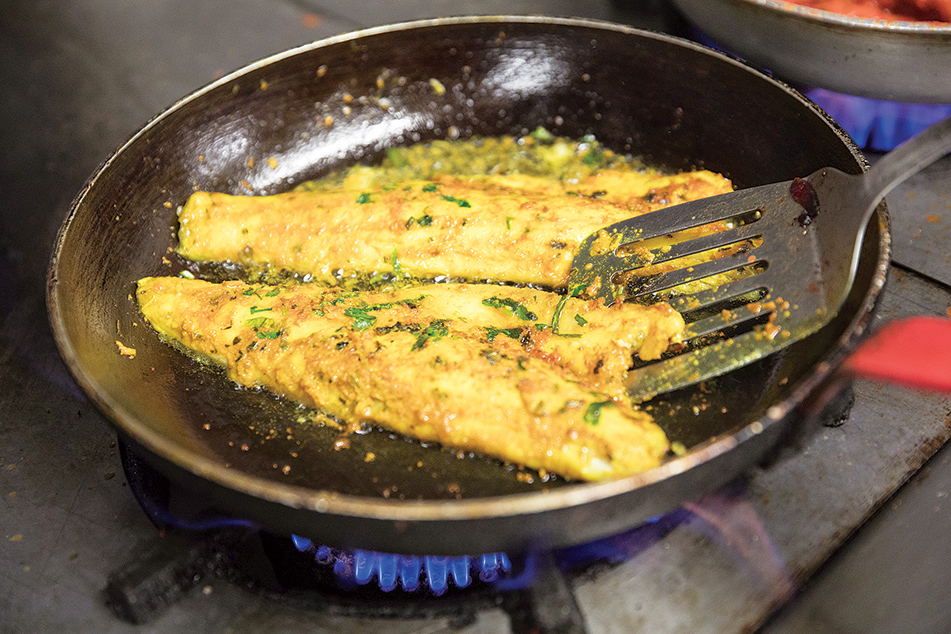
“We understood and appreciated the support from the government, but in my mind, we had already had that and Eat Out to Help Out risked alienating our regulars,” explains Alam. “We knew the restaurant would fill up anyway, but it would fill up with local customers who were just happy to be back. If we had done this half-price scheme, the restaurant would have filled up with new customers looking for a discount, and our regulars may have struggled to get a table. We’d rather make sure our regulars know they are always welcome.”
Bombay Quay didn’t limit its menu either and continued to serve its full range of dishes. While supplier costs did indeed increase during the pandemic, the Bombay Quay team didn’t feel the need to stop cooking anything from their menu. Alam organised his kitchen to make sure all dishes were available and could be cooked without difficulty.
“Chicken Tikka Masala has remained our most popular dish, but on top of that our house specials are also very popular,” he says. “In fact, we have a new dish on the menu, our Desi Lamb. This has a story behind it. At home I have meat on the bone and our chefs were making this lamb on the bone curry for our staff after their shifts ended.”
“It just had so much flavour, so I thought, why not add this to the menu?,” he explains. “The issue was these curries take a lot of time to prepare. So, we decided to cook it the day before and let the flavours really marinate overnight. This is now one of our most popular house specials.”
The dish is described on the menu as ‘This is what the boys eat!’. We tried this dish during our visit and were blown away by the flavours. The meat on the bone really did add another layer of taste. And despite the playful warning about how spicy the dish was in the description, we felt it had just enough heat to be enjoyed by any palate.
For Alam, there is one standout factor that helped Bombay Quay survive the pandemic, which he says applies to running a successful restaurant during any period of hardship.
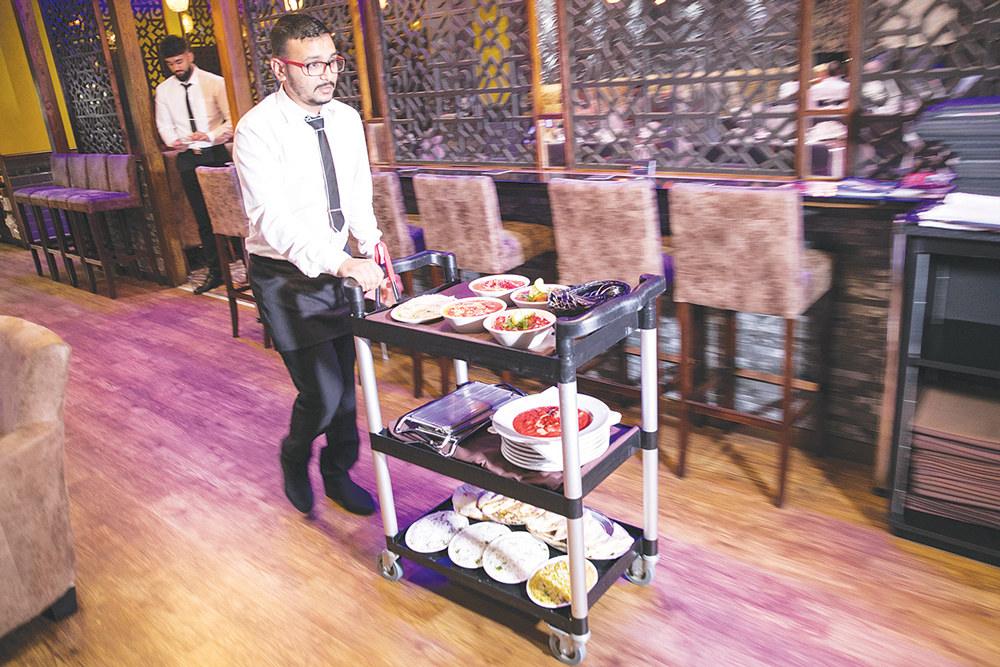
“I couldn’t have made it through without my staff,” he says. “Of course, you need to treat customers like they are a guest in your own home – at the end of the day, without them you don’t have a restaurant. But you also won’t have a business without your staff. I’m so thankful for my team, everyone was there for each other, and now we’re like a family. I would credit our survival and success to our staff.”
Alam is very much aware of the continuing need for the pandemic to be under control but he is looking to the future and making tentative plans for the coming months. He hopes to give back to the restaurant’s customers in some way and is also looking forward to planning a special celebration to tie in with the restaurant’s fifth birthday in October 2021.
Bombay Quay, Hayhurst quay, London Road, Northwich CW9 5EU
Tel: 01606 249911




